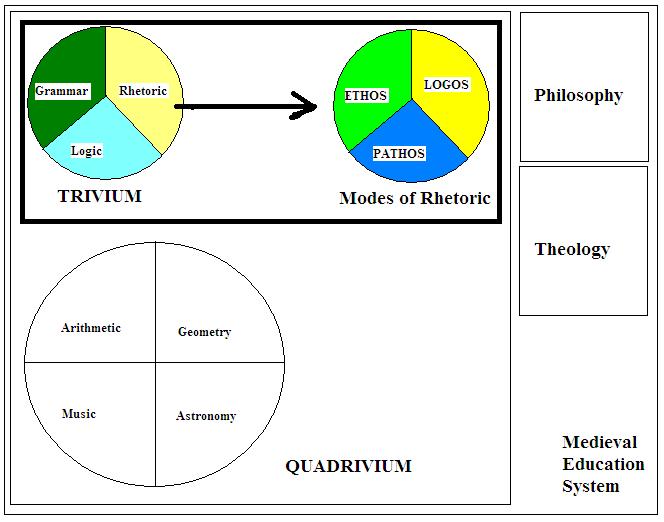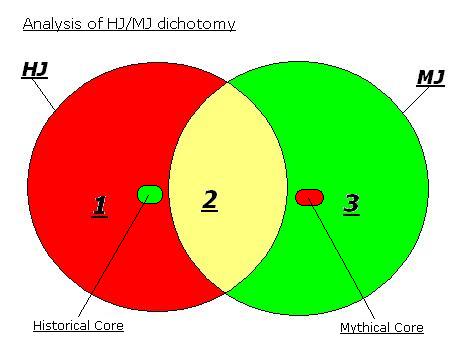
 |
Freethought & Rationalism ArchiveThe archives are read only. |
|
|
#31 | |
|
Senior Member
Join Date: Jul 2009
Location: New York, U.S.A.
Posts: 715
|
Quote:
Chaucer |
|
|
|
|
|
#32 |
|
Contributor
Join Date: Jun 2000
Location: Los Angeles area
Posts: 40,549
|
Please stop dancing around your point. Do you think you can discuss the issue within the rules of this board and say anything enlightening that is worth reading? Your previous efforts were just insults and political reasons for needing a historical Jesus. Have you come up with anything new?
|
|
|
|
|
#33 |
|
Senior Member
Join Date: Jul 2009
Location: New York, U.S.A.
Posts: 715
|
One salient reason, among many, why peer review is a substantive part of the process in getting any duly accredited scholarship published is the acknowledged fact that emotions can, consciously or unconsciously, sway conclusions. Peer review vets those conclusions as one way, among many, to determine how valid certain conclusions may be, independent of personal feelings of the moment. The acknowledgment that emotional baggage can happen is part and parcel of any serious process involving the vetting of any serious scholarship. So of course wariness of emotional baggage is intrinsic to any serious discussion of scholarship. In fact, it could not be more relevant to many questions routinely addressed in this forum.
Dancing around the common humanity of both historicists and mythicists and the equal likelihood that _some_ in both groups may _possibly_ be swayed by emotion is reminiscent of the reluctance from fundamentalists to acknowledge that the many different texts in the Bible were still written down by flawed human beings. Chaucer |
|
|
|
|
#34 | |||
|
Contributor
Join Date: Jun 2000
Location: Los Angeles area
Posts: 40,549
|
Quote:
Quote:
Quote:
It is clear that various non-rational factors can influence scholarship on any issue. But you can't say that just because one scholar has certain biases, that his or her results should be disregarded. Otherwise, there would be little left to discuss in the field. There are believing Christians who are committed, emotionally and confessionally, to the proposition that Jesus appeared in history. There are post-Christians who are committed emotionally to the idea of a self-sacrificing charismatic preacher who showed how the world could be transformed. There are certain new age types who are committed to a gnostic view of Jesus as a spiritual archetype. There are probably other emotional or ideological views. But they all have to deal with the same evidence, or lack of evidence. The ideal in modern scholarship is to put your own beliefs to the side in presenting your theories and evidence. Chaucer and Abe want to make the argument that mythicists are motivated by hatred of Christianity. There are no facts to support this. There are historicists who hate Christianity as much as any mythicist, and there are mythicists who are fairly pro-religion. I don't know what else to say about this, except that the charge of anti-religioius bias on the part of mythicists appears to be an attempt to dodge any discussion of the real issues. |
|||
|
|
|
|
#35 | ||||
|
Senior Member
Join Date: Jul 2009
Location: New York, U.S.A.
Posts: 715
|
Quote:
Quote:
Such emotions may run as far afield as a particularly strong attachment or antipathy to someone encountered only once or twice strenuously arguing some case. They may run as far afield as a strong instant like or dislike to a writing style encountered in some article. They may even run as far afield as personal crises happening in someone's life that impact unrelated aspects of their study process in unpredictable ways. We often don't even know. But that's the point. Often, emotional baggage can assume certain habits of thinking that are entirely unpredictable or even generated below the surface. That's what it means to be human. That's why the notion that mythicists and historicists alike can be subject to the same human tendencies of a certain degree of emotional baggage is self-evident. Dancing around those self-evident tendencies and the self-evident humanity in both groups is like dancing around the self-evident humanity of those who wrote down the various different texts in the Bible. Chaucer |
||||
|
|
|
|
#36 |
|
Contributor
Join Date: Jun 2000
Location: Los Angeles area
Posts: 40,549
|
Please - what is your point?
|
|
|
|
|
#37 | |||
|
Contributor
Join Date: Mar 2006
Location: Falls Creek, Oz.
Posts: 11,192
|
Quote:
Aristotle identified three modes in the art of persuasion and rhetoric - which have been studied within the education system for some time now. These are ---- [ETHOS], [PATHOS] and [LOGOS] .......  The charge of anti-religioius bias appears to be a direct appeal to to the audiences' sense of emotions, and as it has been stated in this thread it thus appears to be based on pathos. That is --- pathetic rhetoric. We have yet to see what the same people have to say within the realms of ethos and logos. They may miraculously sway the entire forum !!!! There may be some ethic or logic to this this argument that has yet to make itself known. However if there is it would be helpful if it were to be addressed to the following general defininition of the "theory space" that seems to be present among everyone in general --- from the mainstream to all the various forms of more critical and skeptical theories about the Historical or the Mythical or the Fictional Jesus as depicted in the following diagram. What region in this diagram of the "theory space" is supported by Chaucer et al? Do these people say "It is expedient I think to set forth to all mankind the reasons by which I am convinced that the New testament as packaged with the "Historia Ecclesiastica" of Eusebius of Cesarea represents the Historical Truth"? If so, they must find themselves their place in "theory space" ... with the HJ ... and set forth their reasons (ethical and logical). Evidence from the field of ancient history would be highly regarded. In the following diagram the "Historical Core" being the core of all Historical Jesus Theories and the "Mythical Core" being the core of all Mythical Theories are separated.  Quote:
|
|||
|
|
|
|
#38 | |
|
Senior Member
Join Date: Jul 2009
Location: New York, U.S.A.
Posts: 715
|
My point? When you say very generally in Posting no. 24 in this thread "It's all possible", what's _your_ point? You still don't concede in so many words that mythicists and historicists, being equally human, are equally susceptible to allowing emotional baggage -- it can be _of_ _any_ _sort_ and _for_ _any_ _reason_ -- to sway them in _some_ of their scholarly conclusions. Being equally human, that potential tendency in both groups is equally likely. That is self-evident. Yet equating the two groups in that way comes off as heresy for you? Why?
Quote:
Chaucer |
|
|
|
|
|
#39 | ||
|
Contributor
Join Date: Jun 2000
Location: Los Angeles area
Posts: 40,549
|
Quote:
Quote:
The point I will stand by is that when you try to discredit all mythicists by questioning their motives, you are violating the rules of this discussion board. You are not discussing the issues, and you are engaged in personal insults. And you still haven't said anything about Biblical Criticism or History. Please stop wasting time. |
||
|
|
|
|
#40 | |||
|
Senior Member
Join Date: Jul 2009
Location: New York, U.S.A.
Posts: 715
|
Quote:
Quote:
I am _not_ referencing "all" mythicists. I am referencing general human tendencies toward emotional baggage of all sorts that _some_ historicists and mythicists alike -- _some_, _not_ "all", as you claim here -- are inevitably susceptible to, being human. Chaucer |
|||
|
|
| Thread Tools | Search this Thread |
|